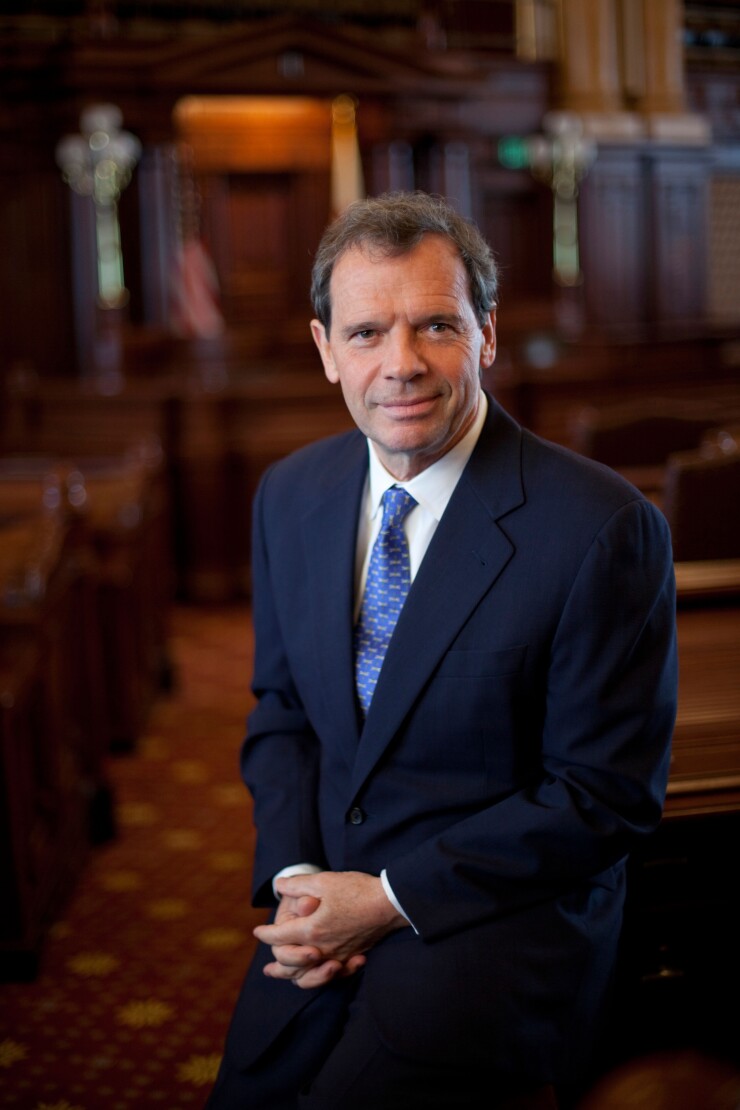CHICAGO – Efforts to override the Illinois governor's changes to a school funding package face a formidable hurdle as soon as this week in the state House of Representatives.
The Democratic majority wants to override the changes Republican Gov. Bruce Rauner made to its school funding package through an amendatory veto.
The first of $6.7 billion in fiscal 2018 general state aid payments is being held up, forcing some of the state’s 852 districts to drain reserves or borrow, until a new evidence-based model is adopted. That was a requirement tucked into the state budget package. Fitch Ratings has warned of the potential negative impact on some districts' ratings.
The Senate on Sunday overrode the changes to Senate Bill 1. One Republican joined the chamber's 37 Democrats for the 38-19 vote to let the original bill stand. A super-majority of 36 was needed.

“The Senate moved our state one step closer to getting rid of the worst funding system in the nation. I hope the House will be able to do the same and finally bring the reform Illinois public schools need,” Senate President John Cullerton, D-Chicago, said after the vote.
The House has 15 days to act. Members could vote as soon as Wednesday when the chamber has been called back to work for an education funding hearing by Speaker Michael Madigan, D-Chicago. Democrats hold 67 seats, fewer than the 71 needed to override. GOP members who broke with Rauner to approve a budget package by overriding his vetoes have so far showed little interest in doing the same on the education issue.
Rauner reshaped the bill that he originally labeled a bailout for Chicago Public Schools. His changes dramatically cut CPS funding and reshaped how tax-increment funding and future enrollment changes impact funding formulas.
Ahead of the vote, Rauner defended his changes as fair to districts across the state and called on senators to uphold his changes. “I urge Senators returning to Springfield today to take up my plan to achieve true education funding reform for all our children, especially those in the neediest areas of the state,” he said.
Rauner said he is open to negotiations on a new bill. If the House fails to override the amendatory veto then the bill is dead which leave schools unfunded and force all sides back to the table.
Rauner called for a leaders meeting in an attempt to resolve differences between the original bill and his changes. “We are hopeful that Speaker Madigan and President Cullerton share our sense of urgency to reach resolution. Families and educators across the state are heading back to school,” Rauner said in a statement.
The Illinois State Board of Education released an analysis of the Rauner changes saying 97.5% of districts would receive more funding than under the original bill. “Under the governor’s plan, no school district would receive less funding this school year than it received last year,” a statement said.
But Democrats attacked the assessment noting that CPS is a big loser under the changes and that in the third year of the overhaul districts that lose enrollment will begin taking a hit. More than 300 districts lost enrollment between fiscal 2015 and 2016 so the future impact could be widespread if enrollment trends continue, Democrats said.
The veto also removes a minimum funding level to guarantee state future state funding levels and for the first time would penalize districts that serve communities with TIFs.
“Under the AV, CPS is the only district that starts by losing money,” Democrats said in a review. “This is inherently unfair.”
Cash-strapped and junk-rated CPS would receive $463 million or 26% less in direct aid from the rewritten bill than in the original bill, according to a review. The administration put the net loss at less because the governor has proposed providing CPS with $221 million in new teachers’ pension funding help. The General Assembly would need to approve that pension funding as part of the budget, however, adding uncertainty to its chances of passage and it would create a hole in the budget.
CPS unveiled on Friday the “framework” for a $5.75 billion fiscal 2018 budget Friday that relies on $300 million of new state money that’s still up in the air and $269 million of unidentified new “city resources.” The district is relying on those funds to erase about $550 million of red ink in the new fiscal year that began July 1.





